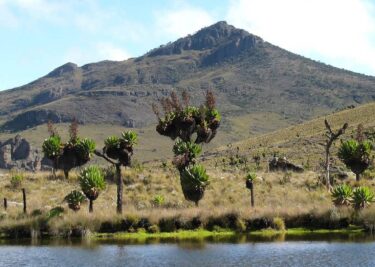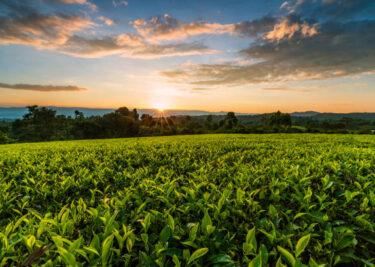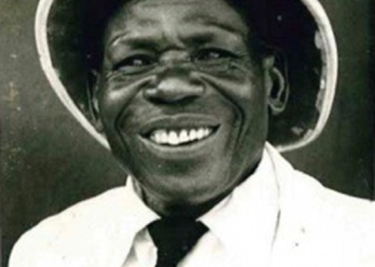Dini Ya WaTurkana

Image credit: Turkana Land
Linguistic and non-linguistic codes are used to portray religion. Among the Turkana of Northern Kenya’s, Turkana County, language is fundamental to their religion. Religious words, chants and other expressions are chosen carefully for divine communication. The Turkana believe in one supreme God, Akuj. Akuj’s name is derived from the same root as the ones for nakuj, which means ‘up’ or ‘above’. As a result, Akuj is associated with the sky. He is thought to live in the sky. Other Turkana people believe that he is the sky itself.
Akuj, the Supreme Being
Akuj’s abode above is divided between him and other different hosts: Akuj nameri (God of the stars) and Ngiapan or Nipen (spirits).
Akuj is the sole provider for the Turkana people. Most importantly, he is the source of rain. His instrumental role as the rain-giver places him centrally as a life-giver. While Akuj is responsible for rain, he’s not responsible for thunder and lightning. This is because the Turkana believe that there can be thunder and lightning without rain, but there can never be rain without Akuj’s power.
Akuj’s providence of rain is highly dependent on his mood. When Akuj is happy, he sends rain, when he’s angry he withholds it.
Turkana Prophets and Diviners
Being an all-providing God, the Turkana people strive every day to seek Akuj’s will. They do this using the help of diviners and prophets (emuron). Emuron are Akuj’s representatives here on earth who have rainmaking powers, are tasked to purify age sets and predict impending calamities. Emuron’s crucial role, however, is to interpret and relay Akuj’s intentions to the people. They do this in various ways: through their dreams (ngakirujaeta), by observing the intestines of animals sacrificed to him and reading tobacco, gourds, and stones. Other emuron use a method infamous among many Turkana people: tossing sandals in the air then observing how they’ve fallen on earth and using it a sign from Akuj. This is called akiteyene, which directly translates to “cause to know”.
Besides communicating what Akuj has to say to the Turkana, emuron who can be men (ngimurok) or women (ngamurok), also serve as doctors in the community. This, however, doesn’t mean that all emuron possess the same powers. What an emuron can do depends on the powers they have. For one to become an emuron, they must be chosen by Akuj who leads them with the power of good spirits (ngipian lu ajokak) from their home to the wild filled with grass and inhabited by animals before returning home where they will witness to the community what has transpired. Afterward, members of the community will take them to an elder emuron who will validate the testimonial. Next, the person is cleansed (amok) after which they resume normalcy or their dreaming takes off. The most powerful emuron called ekerujan (dreamer) is the one closest to Akuj.
Animal Sacrifice and Intercession
Apart from the emuron, the living dead act as intermediaries between the people and Akuj. This is because when one dies among the Turkana, they’re believed to ascend to the sky near Akuj. People offer sacrifices, prayer to, and pour libations to the living-dead to keep them happy. This way they become good ancestors (ngikaram) who intercede to Akuj on behalf of the people.
Animal sacrifice is an integral aspect of Turkana religion. They are offered to implore Akuj to send rain. Such sacrifices are normally accompanied by music and feasting. Individuals and groups sing and dance to Akuj while an emuron presides over the offering of sacrifices.
An ox is sacrificed to Akuj following a drought, while a bull is offered to him to rid the community of the memories of animals who died during an outbreak. The aroma of roast meat wafts off to appease Akuj’s anger.
In Turkana religion, all the spiritual efforts the community makes are aimed at pleasing Akuj. The ancestors, prophets and diviners, and the people themselves all work together to implore his benevolence for the blessing of shade, rain, and pasture for livestock.
Do you know of other Turkana religious practices? Let us know in the comments.
#DiniZetu



